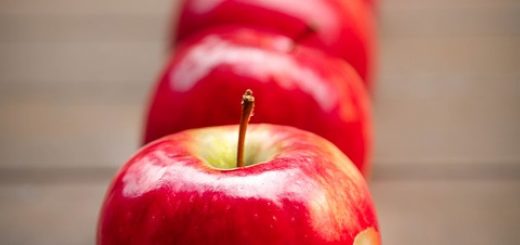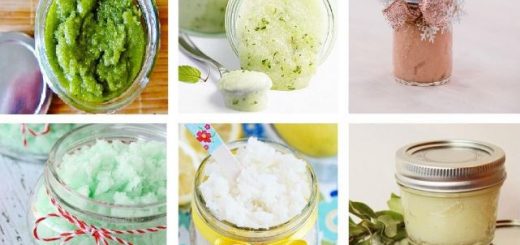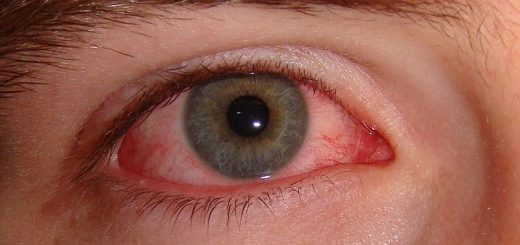21 Home Remedies for Sensitive Teeth
What are sensitive teeth? While the issue is in the name, the issue is still different for many people. Some have only one sensitive tooth while another may a number of them if not all of them.
What Causes Sensitive Teeth?
Teeth become sensitive when the enamel that protects the insides of the tooth become worn down. There are a number of things that can wear the enamel down. If you have trouble with GERD (Gastroesophageal reflux) can send acidic breath up through your throat and can break down the enamel; bulimia and gastroparesis can also break down the enamel because of the stomach acid that goes through the mouth with the vomit.
Other causes can include bleaching your teeth, grinding your teeth in your sleep, tooth decay, brushing too hard or with too hard of a toothbrush, having chipped or broken teeth, getting fillings or crowns, and drinking or eating acidic drinks or food.
What are the Symptoms?
Again, this can differ from person to person, but for the most part, the most common triggers are hot and cold foods drinks or air; mouth rinses or washes with an alcoholic base; sweet or acidic drinks or foods; and flossing or brushing.
It should also be noted that the symptoms may not always be there, they can come and go, or a tooth that was once sensitive can lose it while another picks it up.
Home Remedies for Sensitive Teeth
-
New Toothpaste
There are different kinds of toothpaste that you can get over the counter that say on the box or tube that they are made for people with sensitive teeth. These kinds of toothpaste are made special because they have fewer irritants or no irritants at all.
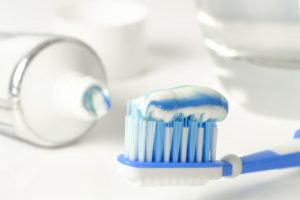
Tubes of toothpaste with baking soda in them are great to use
-
Softer Brush
Using a toothbrush with hard and harsh bristles can actually scratch through the enamel and do damage. To avoid this, you can get a brush with softer bristles. Like the toothpaste of sensitive teeth, the softer brushes will also be labeled as such.
-
Different Mouthwash
Mouthwashes that contain alcohol in them can sometimes trigger sensitive teeth pain. If there is alcohol in the mouthwash you usually use, toss it out or give it to someone who does not have sensitive teeth. You can get mouthwashes and rinses that still do the same amount of good without the alcohol.
When you buy the new mouthwash, try to find one that has fluoride in it. The fluoride can help to strengthen and rebuild the enamel that’s been worn down or is in the process of being worn.
-
Acid Reducers
As mentioned, GERD is one of the leading causes of sensitive teeth. You might be able to get these over the counter, or you might have to talk to your dentist or doctor, but these might be able to help at least a little. To learn more about how to reduce occurrences of acid reflux, read our article 34 Home Remedies for Acid Reflux.
-
Mouthguard
If you find that you grinding your teeth in your sleep, then you can get a mouthguard. You get these over the counter in the sports sections of most stores or you can even get specially fitted ones. If money is tight, it would probably be best to go with the over the counter option.
-
Salt Water
Salt is an antiseptic that can kill bacteria while also lessening the inflammation. So you can gargle a salt water rinse twice a day to see if it will help you. To make the rinse is pretty easy.
You need a half to ¾ teaspoon of salt and you mix that into a glass of room temperature water. You take a sip, swish it around your mouth for 30 seconds and spit it out. You can use this rinse once in the morning and once at night to get the best results.
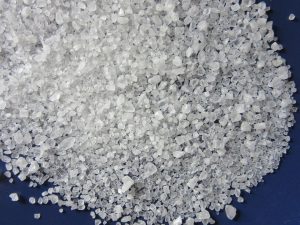
You can use table salt or crushed sea salt for this home remedy
-
Warm Water and Honey
Honey is often used to help wounds to heal and as an antibacterial. Honey has the power to reduce swelling, inflammation, and pain while speeding up the healing process.
To use the honey to ebb teeth sensitivity, you want to rinse your mouth with a spoonful of honey and warm water. Not only will this make your teeth less sensitive, it will also help with other mouth healings.
-
Hydrogen Peroxide
This one might taste super bad, but it should help. Hydrogen peroxide is used to clean minor cuts and things because it staves off infection. Using hydrogen peroxide will help to keep inflammation away while also healing your gums.
To use hydrogen peroxide, you want to mix two caps of warm water with two caps of three percent hydrogen peroxide and swish that around your mouth for 30 seconds before spitting it out. After you spit out, you want to rinse your mouth out with water.
-
Green Tea
Using straight, unsweetened green tea as a mouth rinse can heal your gums, lessen inflammation, and strengthen your teeth. Green tea can be used for this because it is an antioxidant and anti-inflammatory.
-
Turmeric
There are two ways that you can use turmeric for its anti-inflammatory powers. You can either just ground up turmeric and massage it onto your teeth and gums, or you can make a different paste that will reduce pain if you use it twice a day.
For the latter, you need half teaspoons of salt, turmeric, and mustard oil. You mix them together and rub it on your teeth and gums twice a day.
-
Chili Peppers
Capsaicin is what makes chili peppers spicy, but they also have analgesic components that have been used to reduce inflammation and burning mouth syndrome. You can use capsaicin as mouthwash or gel that you apply to your teeth and gums. Simply adding more peppers to your diet may also help.

Cayenne peppers are some of the best peppers to use for this home remedy
-
Prevention
There a couple of things that you can do right when you feel like your teeth are starting to become sensitive. You can avoid or limit acidic foods, and maintain oral hygiene by brushing your teeth two or three times each day.
-
Vanilla Extract
Vanilla extract is pain-relieving and antiseptic and has been used to comfort the gums of teething babies. Pour vanilla extract on a cotton ball and rub or dam it onto your gums for a couple minutes. You can use this as often as you need it.
-
Coconut Oil
Coconut oil can kill bacteria, desensitize and whiten teeth, and heal your teeth and gums by getting rid of plaque. Once a day (in the morning is best) liquify a tablespoon of coconut oil and swish it around your mouth for 20 minutes. Once the 20 minutes are up, spit out and brush your teeth as you usually would.
-
Essential Oils
Essential oils are truly amazing things. Not only they amazing for making your home smell good and for boosting your mood, they can also decrease how sensitive your teeth are. You can get food grade essential oils, or you can just put a few drops into a diffuser. The best ones to use for oral health are clove, peppermint, and cinnamon.
-
Garlic
Garlic can relieve the pain that you can get from having sensitive teeth while killing germs and things that can cause cavities and other oral infections. Take a clove of garlic and crush it up, a half teaspoon of salt, and two or three water drops. You want to apply it to the affected teeth and let it sit there for a few minutes before rinsing it out with the warm salt water. So that your breath does not smell, you can chew on mint or parsley leaves.
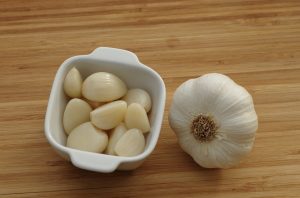
Garlic cloves and whole garlic
-
Guava Leaves
Guava leaves can kill bacteria and cancer-causing free radicals. You can chew on a couple leaves for several minutes and rinse out your mouth. You can also make a rinse by boiling four to five in a small pot of water for about five minutes, sprinkle in some sea salt, and use it as a mouth rinse.
-
Onion
Onion works very much in the same way that garlic does that it kills bacteria and germs and relieves pain. You want a slice of onion that is small enough to fit in your mouth. Once you have the slice, how it to the affected teeth for a minimum of five minutes. When the time is up, rinse out your mouth with salt water to stop bad breath. If the salt water doesn’t work, chew on some mint leaves. You can use this method twice a day.
-
Yogurt
Yogurt can slow how quickly your enamel deteriorates which can reduce how sensitive your teeth are. This is probably the easiest hint in this list. For this, all you have to do is eat a daily half bowl of plain yogurt.
-
Vitamins
Vitamins B and E can heal your teeth and gums while also staving off inflammation. You can get these vitamins from kale, almonds, fish, spinach, turnip, dairy, eggs, and poultry.
-
Cucumber
You know how whenever there is a spa scene in a movie, it always shows the person with cucumber slices over their eyes? That is because the cucumber can limit inflammation by keeping blood in the blood vessels. So try taking a slice of room temperature cucumber and holding it the affected area for five minutes.
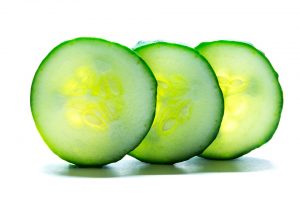
You will only need a few slices of cucumber to make this home remedy work wonders for your sensitive teeth
Which of these home remedies are you most likely to try? Comment below!
Sources
https://www.drstevenlin.com/11-home-remedies-relieve-tooth-pain-naturally/
https://www.healthline.com/health/sensitive-teeth#1
https://www.livescience.com/44377-sensitive-teeth.html
https://www.healthline.com/health/sensitive-teeth-home-remedy#treatment




